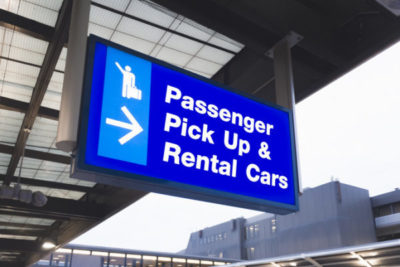Everything You Need To Know About Rental Car Insurance
You’re standing at the rental car counter with a long line behind you. You got a great rate on a car for the week, and you’re ready to go on vacation with the family. Then, you’re handed a clipboard with an intimidating rental car contract filled with confusing insurance options. Suddenly, you wish you’d spent less time packing and more time researching rental car insurance.
Since rental car insurance isn’t something most of us will deal with on a daily basis, it’s easy to get confused or overwhelmed when presented with a choice for this type of coverage. Continue reading on to learn some basic facts about rental car insurance and whether or not you need extra coverage beyond your personal auto insurance policy.
What Is Rental Car Insurance?
Not to be confused with rental reimbursement coverage, which is an add-on to your auto insurance policy that provides reimbursement for a rental car in the event your car is being repaired due to a covered loss or accident, rental car insurance is insurance that covers you when you rent a vehicle directly from a rental car company, such as Enterprise Rent-A-Car. When you’re renting a car at the airport or at another rental car location, you will be asked whether you want to add insurance to your rental, or whether you want to waive the insurance.
Do I Need Rental Car Insurance?
The most common question when it comes to renting a car for domestic travel is “do I need rental car insurance coverage?” The answer is: it depends. You want to make sure you and your rental vehicle are covered, but you also don’t want to pay for unnecessary duplicate insurance coverages that could double the price of your rental.
How To Tell If You Need Rental Car Insurance Coverage
The first step is to check your auto insurance policy, or contact your provider to see what type of coverage for rental cars may already be included in your personal auto insurance policy. If you carry comprehensive and liability coverage on your personal car, coverage typically will extend to your rental car within the United States.
If you’re renting a car in the U.S. of similar value to your personal car, in all likelihood your auto insurance coverage will be adequate for the rental. But if you’re off to a blowout beach weekend in a slick set of wheels like a Corvette Stingray and you’re leaving your 2008 Subaru Forester at home, purchasing the extra auto insurance coverage offered by the rental company may be a good idea.
Does My Credit Card Provide Rental Car Insurance?
You should also check with your credit card company—the credit card that you’ll be using for your car rental. If there are any gaps in coverage with your personal auto policy, the credit card company could provide secondary coverage.
 What Is Covered Under A Typical Rental Car Insurance Policy?
What Is Covered Under A Typical Rental Car Insurance Policy?
Most rental companies typically have a short, predictable suite of rental vehicle insurance offerings. Know the policy of your rental company before you arrive at the counter. Check your personal auto insurance policy to determine if you’re already properly covered and are able to decline the offered coverage from the rental company.
Rental car insurance is usually broken out into the following coverages:
- Liability coverage
- Personal accident insurance
- Collision Damage Waiver (CDW)/Loss Damage Waiver
- Personal Effects Coverage
Insurance You May Have Already
Liability Coverage
This is a basic component of most car insurance policies. If you have adequate liability coverage on your own vehicle (check with your insurance provider), you may choose to skip this one.
Personal Accident Insurance
This covers your medical bills in the event of a crash in the rental car. As long as you have personal injury protection or medical payments coverage on your auto policy and reliable health insurance, you may not need this coverage.
Rental Car Coverages You Might Need
Collision Damage Waiver (CDW)/Loss Damage Waiver
This is not an insurance product, but rather a waiver that transfers financial responsibility from you to the rental car company in case of damage or theft. In most cases, collision damage waivers also provide coverage for “loss of use” if the rental car company charges for the time a damaged car can not be used because it is being repaired.
Personal Effects Coverage
If you have a , or condo policy, your personal items will generally be covered even if they are stolen from a rental car. Review your policy documents to be sure before you elect or decline this coverage.
Next steps: To learn more about your policy and rental car insurance, call us at 1-800-841-0728 or review your policy documents on geico.com. Or, if you’re looking for a new auto policy, compare car insurance and see why GEICO is the right choice.
This content was originally published here.




Responses